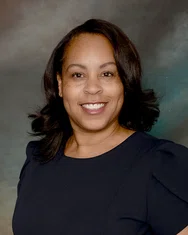
As the assistant superintendent of SELPA and Equity for Ontario-Montclair School District and a current ACSA state board member, I am passionate about advancing equity and inclusion for all students. Our responsibility as educational leaders to center equity in all decision-making forums has been shaped by the courageous efforts of trailblazers before us and today continues to play an integral role in transformational leadership.
The Individuals with Disabilities Education Act (IDEA), originally enacted in 1975 as the Education for All Handicapped Children Act, marked a monumental shift in public education. Its purpose then, as it remains today, is to ensure equity, access, and the protection of rights for students with exceptional needs.
It may come as a surprise that prior to the passage of this law, more than one million children with disabilities were excluded from public schools. IDEA established the legal right to what we now refer to as a Free Appropriate Public Education (FAPE) — including specially designed instruction and services that promote inclusive practices.
Today, approximately 65 percent of students with disabilities spend 80 percent or more of their school day in general education settings alongside their non-disabled peers. This inclusive approach supports social-emotional development, facilitates access to grade-level curriculum, and fosters higher academic expectations.
Under Part C of IDEA, early intervention services are provided for infants and toddlers with disabilities, significantly improving developmental outcomes. Additionally, IDEA has led to increased parent engagement and advocacy, supported through legally mandated procedural safeguards that empower families as equal partners in the educational process.
Perhaps the most significant — and ongoing — impact of IDEA has been the transformation of mindsets. While the law has facilitated progress from segregation to inclusion, there remains a persistent need to challenge fixed mindsets, which can lead to regressive thinking and stagnation in student achievement.
As educators and leaders, it is our collective responsibility to ensure that underserved and marginalized students remain at the center of our work. This requires continuous reflection, data-informed monitoring, and strategic refinement — what I refer to as “adjusting our lens.” Equity is not a one-time initiative but an ongoing commitment that demands unwavering attention and support.
To the colleagues who continue to champion this essential work — your efforts deserve recognition. And to the families and students we serve, please know that our strongest outcomes are achieved in partnership. Together, we must continue advancing the vision of IDEA and striving toward a future where all students are afforded the opportunity to thrive.
Alana Hughes-Hunter, Ed.D., is the assistant superintendent of SELPA and Equity for Ontario-Montclair School District.
Equity is not a one-time initiative but an ongoing commitment that demands unwavering attention and support.




